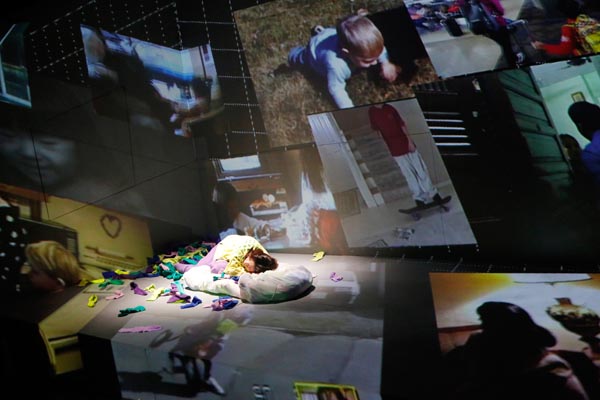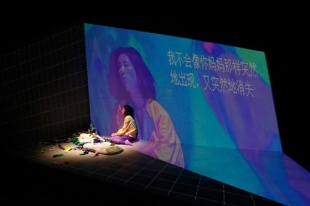AI drama thinks inside the box


A new multimedia play explores our reliance on artificial intelligence, Cheng Yuezhu reports.
At the 2017 Beijing Fringe Festival, young director Chen Ran entered a theater competition where she was asked to plan a short play within the space of 48 hours.
She had just gone through a phase of sleeping at friends' places as her own flat was unliveable due to construction work. For a week, she slept on a "really comfortable" sofa at a friend's studio.
"That week, I barely even left the sofa apart from going to the bathroom. I sat there watching TV and working on my laptop," Chen says.
"Then I found that at 3 o'clock every afternoon, a robot vacuum would turn up and clean the floor. So it presented an interesting scene, with a motionless human and a hardworking robot. The scenario is unforgettable."
When the competition presented her with an image of a girl embracing her own reflection in the mirror, she thought of the relationship between humans and artificial intelligence, which inspired her to write Dee& D-1, a 25-minute monodrama.
In the 2019 edition of the festival, joined by several theater practitioners, including writer Zhang Hang, actor Ma Zhuojun and scenographer Wang Di, she extended the short play into a full-length theater production, Approximation: Dee & D-1, which premiered at the National Theater of China on Nov 15.
Within the confined living space, the play charts the relationship between the protagonist Dee and her home AI hub, D-1. As the story unfolds, the two seem to almost redefine each other-Dee customizes D-1 to become more domesticated and help her in almost every aspect of her life.
The stage is designed as a simple room with a sloping floor, where the protagonist is depicted writhing on the floor in ennui and unease.
Although the AI hub is intangible, the role of D-1 is ubiquitously present throughout the play, and its lines are continually projected onto the walls behind Dee.
"I knew that when the dialogue spoken by the AI unit was presented as subtitles, the audience wouldn't be able to absorb all the lines at once. But I really wanted to create the feeling that the two characters were in different dimensions," Chen says.
The tilted angle of the stage was designed in a way to create an optical illusion, or at least offer a sense of illusion, according to Wang, the set designer.





































